MALAYSIANSKINI | If you're a Malaysian who has put pen to paper, you will do well to draw inspiration from Adele Lim. She's gone from a precocious columnist with The Star's Youth section in the 1990s to cutting her teeth on global hit television shows like Xena: The Warrior Princess, One Tree Hill and Private Practice.
As if that wasn't enough, Lim (above, second right) has upped the ante in recent years. She co-wrote the screenplay for the 2018 hit Crazy Rich Asians which starred Constance Wu, Henry Golding and Michelle Yeoh. The movie made US$238 million (RM988 million) at the box office on a budget of US$30 million.
A graduate of Boston's Emerson College, Lim also made the news when she walked out on the sequel in protest at the gender pay gap after learning she would be paid a mere eighth of what her male co-writer Peter Chiarelli stood to make.
Luckily, she landed another even more exciting project – to co-write Walt Disney Animation Studios' 59th animated feature film, Raya and the Last Dragon.
The tale of a lone warrior who sets out to find the last dragon in existence and save the kingdom of Kumandra from the villainous Druun, the movie draws on various myths and legends from the South East Asian region.
It was first slated to hit movie theatres on Nov 25 this year, but due to the Covid-19 outbreak, its release had now been pushed back to March 12, 2021.
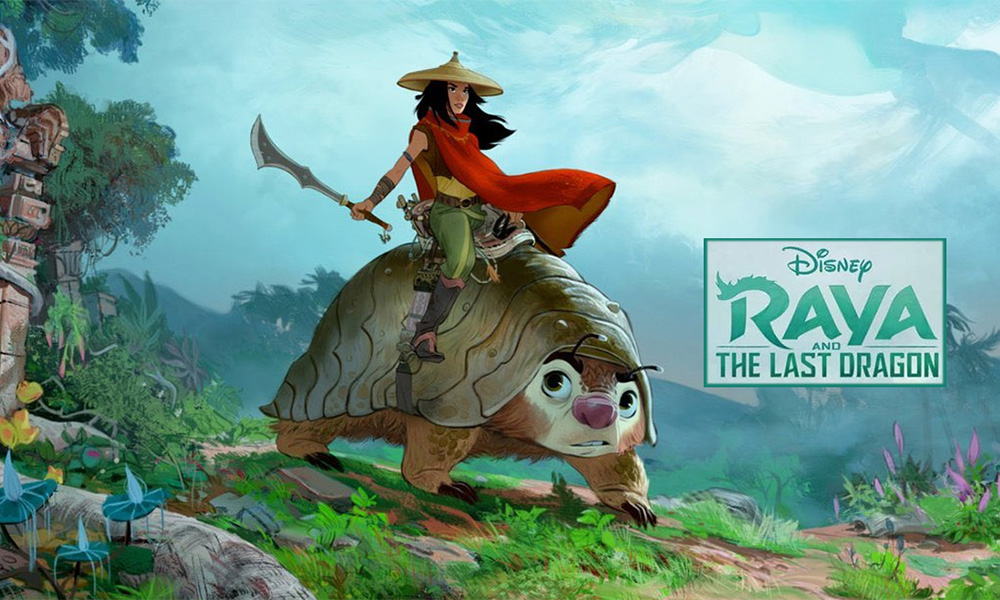
Still, the mother of two isn't stopping there, and there's every chance we'll see her making a directorial debut in the near future and a novel at some point further down the road.
Two weeks ago Malaysiakini caught up with Lim, who still tosses in the odd "lah" while largely speaking in a Californian accent.
This is her story in her own words:
Hollywood glamour is not what you think. I've been living here and doing this for so long, and I'm a writer. There is a limit to the glamour when you're a writer.
I think I took it in stride when Crazy Rich Asians broke. I think we were all just so nervous about the movie doing well because it was a big-budget Hollywood movie. It was not a huge one, but they had not done a contemporary Hollywood movie with Asian actors for 25 years, the one prior to that was The Joy Luck Club.
Even though (director) Jon Chu and I knew that we had something special with Crazy Rich Asians, and we loved it, and we knew it was magic – you really don't know how the mainstream American audience is going to receive it, how it's going to be received around the world.
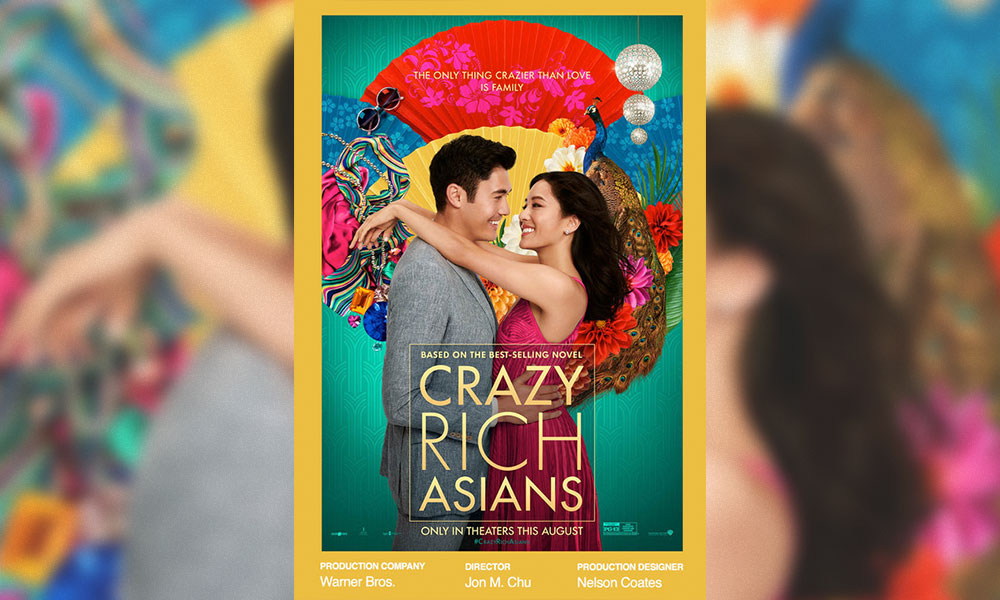
So really that first week it was the feeling of alright we didn't completely crash and burn! And then when it started doing better, we were just so exultant and jubilant about the whole thing. But it was really more about other people getting to share what we had and being excited about it.
I don't think we should be too surprised about the gender pay gap. It's a lot more diverse on television. There are a lot more female writers and showrunners – Shonda Rimes who worked on Grey's Anatomy and Scandal is the highest-paid TV showrunner.
But when it comes to the feature space, by which I mean movies and films, that is still very much dominated by white men, and I don't think there is this concerted effort to keep out other filmmakers.
It's just that it's so expensive to get a movie up and running. So it may just perpetuate the system.
If you have a white male director, he's going to be more excited about a story about a white male hero and the actor he casts is going to be a white guy. The writer he hires is going to be a white male, and so you have a system that is primarily very white and very male, and they are not used to other people being in the same sandbox as they are.
When I came on - and you know - I had a longstanding career in television. I know what I'm worth, what I bring to the table and I don't think that they were used to that.
I think by me coming out it was really about throwing light on a system that even though it does not set out to be overtly racist, ends up being sort of sexist and racist just by the way the system is set up.
Of course, it was a very difficult decision to walk away from the sequel. I'm still good friends with Jon Chu the director and a lot of the cast as well, and I want nothing but the best for the series.
I had such a great time doing it and Malaysian/Singapore culture, we're so close, along with the families and people featured in it. Even though I didn't grow up in a crazy rich family – I grew up in a crazy Chinese Malaysian family so everything that I wrote, for the first time in my career, I didn't have to put it through the lens of a white American male.
I could just tell the stories of us.
Even when we were making it in the early stages, it really was a love letter to Malaysia, my family and my friends. So there's a lot of emotion and love built into it, and of course, it sucks to have to walk away. But your principles have to count for something.
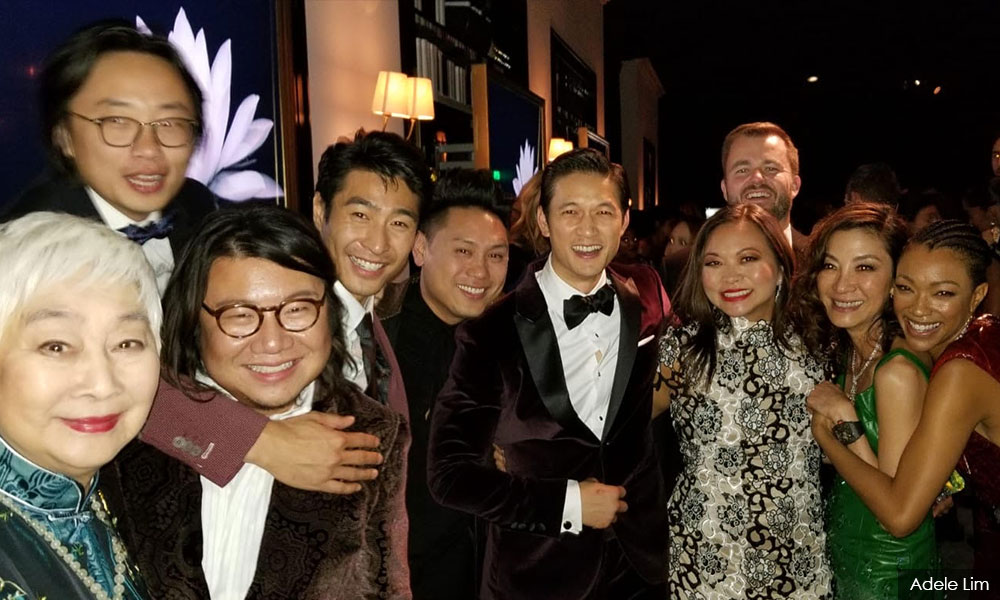
A big consolation came in the form of Raya and the Last Dragon. At this stage, I'm not so involved because it's an animated movie. It was supposed to premiere in November, but because of Covid-19, all movie premiers got punted because Americans really can't go to the cinema right now.
I was with that project for almost two years, and towards the end, we had done most of the story, and there are various versions of the script which I had written.
I had already written something else on the side which my friends and I had sold to (entertainment company) Lionsgate, and they made me an offer to direct it. I stepped away from Raya at that point, but I felt that I had left it in good hands. I'm still involved in it, still chiming in on the scripts and the various cuts that they've made – they call them screenings.
I'm still in touch with the director and the creative team over there, still giving notes. And I'm very excited – I cannot wait for everyone in Malaysia to see it.
I missed out on the research trip – this is what happens when you're a writer lah. I was supposed to be part of the whole thing. We had this amazing trip planned out, we were so excited and looking forward to it.
But at that point, we had just had a screening, and we had to do a rewrite of the script so I couldn't travel and write at the same time. The producer, Osnat Shurer, and I, we didn't end up going, and we were heartbroken about that. But it has to get made.
I hope to make my directorial debut. The movie we sold is about four Asian women going back to discover their roots. Lionsgate very generously made me an offer to direct it, which I accepted.
The problem is we very quickly got into the Covid-19 era and so who knows what's going to happen to the movie. We want it to be on track, we're still working on rewrites, the plan is to shoot it next year, so hopefully, it goes.
We only have a rough working title for it right now, which I can't share.
Advice for budding young writers – I would say that there are so many more opportunities now for aspiring writers, TV and filmmakers because anyone with an iPhone can pick it up, shoot it, post it on a platform and get attention that way.
But if you're a writer, my advice would be – just keep writing because writing is one of the skills where a lot of people think you're born with. You just show up and immediately write and actually that could not be further from the truth.
The truth is part of it is talent and passion, but a lot of it is a learned craft.
So if you have aspirations in terms of writing for television or film, I would encourage you. There are so many online resources about it, and there are so many books, there's Amazon now.
When I was starting out, there weren't so many resources. The only way you could learn and be part of the business was to find your way to Los Angeles and get a job on a writing staff and hope you survive and learn along the way. Whereas now, it's all out there for you.
With writing, you really have to do it. There's no "oh I'm going to plot a perfect story and then it will be done", and then people will realise I'm a genius and throw lots of money at you.
Those stories happen, but those are the exception rather than the rule. You just have to keep hacking away at it.
If television is the thing you want to do, find a way. Whether it's on a small budget with just you and your friends on an iPhone putting it up on a platform and getting attention that way – just do it.
There are global platforms now, such as Netflix Asia. People are trying to create content for a global audience, so it's a wonderful time to get into it.
I am back in Malaysia almost once a year. I'm still very close to my family there, and my mother's there. I have children now, they're never going to know Malaysia the way I did growing up in Petaling Jaya, but I want it to be part of their lives. And if I'm not back, my mother and my aunties are over here.
I miss the food. The correct answer should be my mother, friends and family. And really, my mother is on the top of the list in all seriousness, but the food is a very close second.
And I feel that all my old friends are in Malaysia. Even though I've lived here for so long, and at this point I think I've lived longer in the United States than I have in Malaysia, but those are the people who know the real you - went to primary and secondary school with you, got into trouble with you, and I still get back together with them whenever I am back in town.
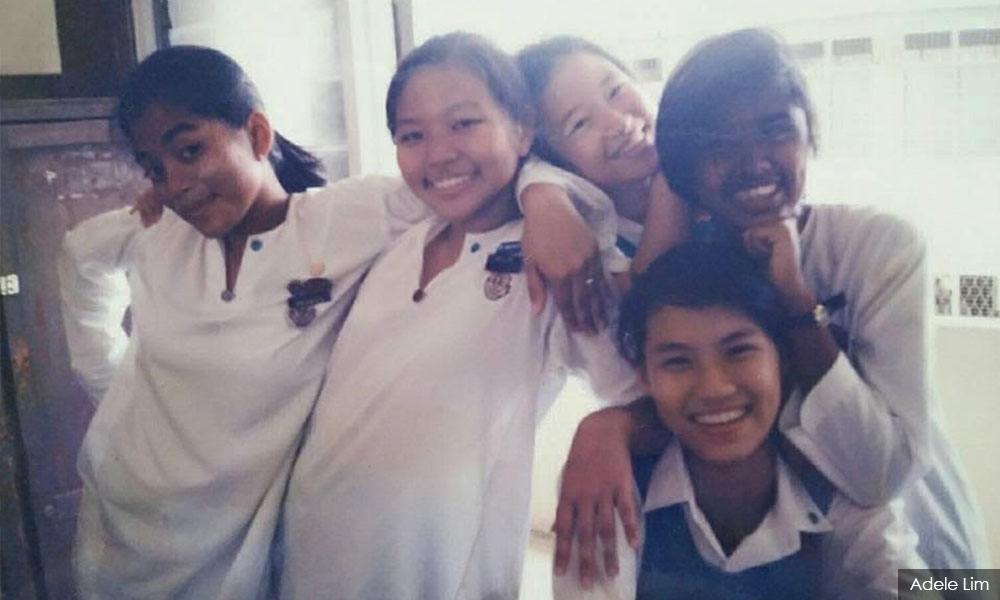
US politics. I could talk for hours on this, but in a capsule form this is my personal view - the reason I came to the US is the America you see on TV. It is an egalitarian society where you believe in merit and that your gender or your race shouldn't matter – that's how it appears to the outside. But when you have lived here long enough, you realise that there are deep enduring inequities between the classes, the races and the sexes.
These are all issues that existed before Donald Trump. I don't agree with him as president one bit. I think he is catering to the worst of America, but Trump doesn't exist in a vacuum. He exists because there is a political party that supports him; there are voters who support his divisive ideas.
So with Black Lives Matter, it is a very important issue that I think America wanted to skate – they wanted to just blow past it – America's deep enduring original sin of slavery and how they treated black people.
It's something that they thought they moved past in the 1970s, but it isn't.
I think no country is free from that. You know Malaysia has its own issues, but if you don't really address issues at the core and instead plaster a superficial fix on them like everything is fine, it doesn't make the problem go away.
So what we're dealing with now - and again I think Trump is the cause of a lot of these issues, but they existed before him - is America really wrestling with issues that they had been suppressing and denying for a long time. Ultimately, I think it's a good thing, and hopefully, the country can come together and work past that in a meaningful way.
Malaysia's political journey - first of all, I just want to bask in the glory that was 2018 for a little while. Because Trump was in power over here and I did not imagine in my wildest dreams when I left for college over 20 years ago that I would be on the phone with my mother having a conversation about how a grassroots, citizen-led effort in Malaysia would lead to cleaner elections.
One where the people's voices were clearly being heard and changed the sort of one-party system that we had, whereas in America it seemed that we were going in the opposite way.
It was so hopeful, and it brought tears to my eyes watching all these Facebook streams about these aunties, whether Indian, Chinese or Malay, volunteering their time to go to the polls.
This hope and this love for Malaysia, wanting to make sure that we had clean elections and having that hope, was amazing. To have the result that we did was really inspirational and showed how Malaysia could be an inspiration to the rest of the world in terms of people power.
In terms of what's happening now, I really don't want people to be disheartened by it. At this point, my views are those of an outsider, but I think these are just the natural growth pains of a nation.
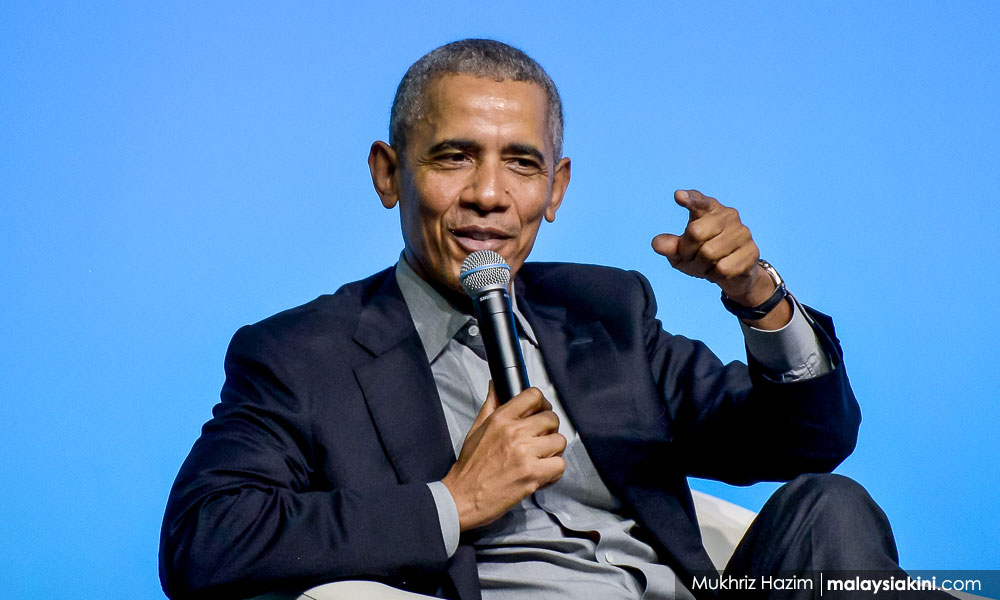
To draw a parallel with America, when Obama was elected, we thought it was a new age of hope and racism is behind us.
But that's not how progress works. It's always two steps forward, one step back and hopefully the issue that Malaysia is going through at this point is just a half a step back, and people are still energised by what happened in 2018.
There are many causes I support, but at this point in America, it's about women's rights and the rights of the minorities. And by minorities, I mean anyone outside of the white ruling class, but primarily women.
The thing you take for granted growing up in South East Asia is that even though individual cultures favour males, but the truth of it is that traditionally in South East Asia women have worked.
For example, I came from a family – well one side of the family - which had an emphasis on the first-born boy that carries on the family name, and girls do certain things, and boys do certain things. Even with cultural biases against women, women had a voice simply by contributing to the family income.
I've learned that America, on the other hand, seems to have a more traditional role for women than we would have thought. It might seem that a woman can work and is sexually free, but I think that's not necessarily true.
A lot of my American friends grew up with the women at home. American heroes are traditionally very male, whether they are war heroes or action stars, and so women are not considered heroes or leaders in that setting.
I think this filters all the way down such as whether women are being taken seriously at a meeting, your ideas when you pitch them – it affects you. And if you happen to be a woman and a person of colour, then you are getting it from both sides.
So it really is about throwing a light on that and making sure that our stories are told. That instead of constantly writing the white guy hero story that I was doing on TV for many years, we should say: "No, there are other stories. Now you know that they are as amazing and as compelling and as profitable as all the other stories out there".
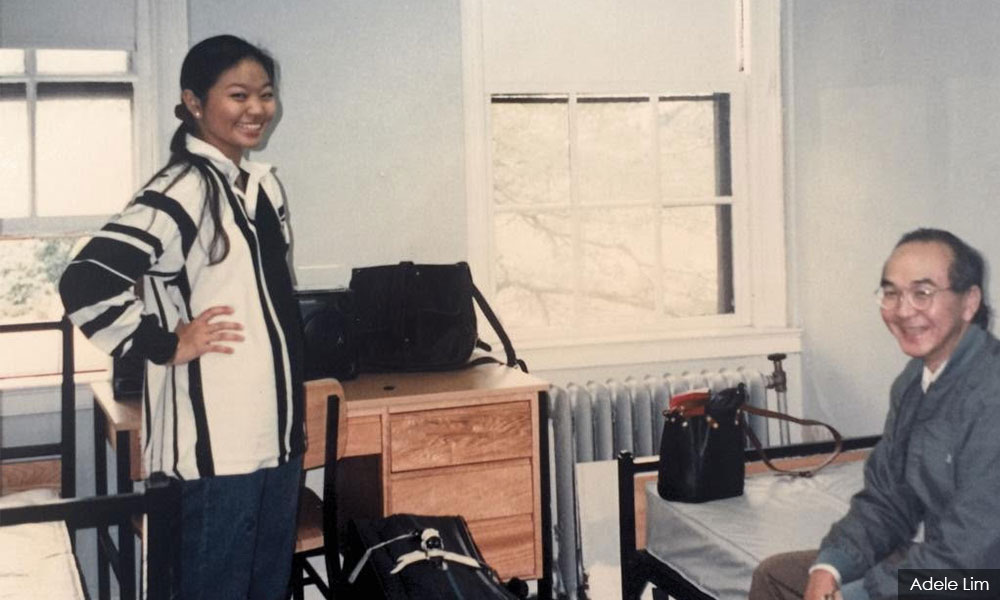
My first love was novels. I grew up reading mostly British writers like Enid Blyton and Douglas Adams, and I always thought I would be writing books. But I always thought I'd be a poor author!
I think that's definitely something I would want to return to at some point because TV and film are very collaborative. I love that now, but with a book, you're pretty much on your own except for your editor.
In terms of inspiration, life is one's inspiration. I don't know how to talk about it. We all have writer's block, but generally, when people pitch me ideas, I get very excited about what the story could be.
I think what I've learned after a while is that the best things on TV and movies are things that have their roots in real life. Reality will always be more compelling, confounding and unexpected than any fiction you could make up.
During the pandemic, I've had a little more time to lean into hobbies, but when you're a working TV writer – someone asked me once – what are your hobbies, and I looked at her like she was crazy because there's no time for anything else.
Running a TV show is a 24-7 proposition, and I also have two children so really my hobbies are my children. I mean – I play the piano, I play the cello, I enjoy cooking, but really I enjoy mucking about with my kids who are eight and 11.
MALAYSIANSKINI is a series on Malaysians you should know.
PREVIOUSLY FEATURED:
Fighting the factories' fearsome fumes
Keeping the Papia Kristang flag flying
From humble beginnings to USM's first Orang Asli faculty dean
Mariani Ramli's life mission to help gibbons sing again

